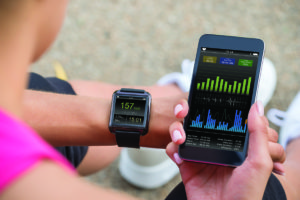We are on the verge of major changes in healthcare and many parties are interested in them: patients, doctors, researchers, commercial companies, medical students. Adding a game component to applications and medical gadgets will help motivate patients to collect data and take an active part in managing their health every day.
From a psychological point of view, people are constantly striving for recognition and waiting for a positive assessment of their actions. The feeling of victory, transition to a new level, participation in competitions and other aspects of gaming allow us to feel more confident and motivate for new achievements. Elements of gamification can turn everyday activities such as shopping, training, and even going to the doctor into an activity from which you can get feedback in the form of bonuses, points or other achievements.
As we know, gamification is one of the latest trends today and no one can deny the use of gamification in the healthcare industry! The main goal of gamification in the healthcare system is to involve patients in managing their health as quickly and easily as possible.

Games not only motivate for new achievements, but also help to reduce the level of stress before examinations. In addition to the fear of the procedure, many doctors are faced with a general lack of knowledge in children and their families about diagnostic methods. Therefore, experts began to apply gamification technology to make the examination process more comfortable for young patients.
The popularity of a healthy lifestyle, as well as special attention to the prevention of diseases lead to the fact that gamification becomes one of the most effective methods of patients’ rehabilitation and habit developing.
The primary influx of application development with gamification was centered on:
Lifestyle and wellness wearables with partner applications: Wearable gadgets, for example, the Nike+Fuelband, Jawbone UP24 and Fitbit Force enable clients to keep informed about their development and interface with different clients to think about details.
Nutrition, obesity and weight management. Applications as HealthMonthTM which assist clients oversee their weight management, makes a good market. These applications are intended to follow well being measurements and give challenges and prizes.
The following wave of application development with gamification will concentrate on:
Disease determent, self-control and dependability. Chronic diseases as diabetes or cancer require regular testing and follow, however for some people it is not easy to stick to plans. Applications like Bayer’s DidgetTM makes it easy to users. A video game called Re-Mission enlightens cancer patients about their disease by giving them a nanobot named Roxxi as she goes through the body of the fictional cancer patient.
Psychological, mental, emotional health. A healthy mind is vital for a healthy body. Applications like BellyBioTM help soothe uneasiness through deep breathing exercises and music. Sparx, 3D dream game, created by the University of Auckland, New Zealand, helps people with depression to manage their depression by psychological behavior treatment procedures.
 Many countries are already successfully introducing a game approach to medicine.
Many countries are already successfully introducing a game approach to medicine.
For example, in China, the focus is gradually shifting from the treatment of diseases to their prevention and early diagnosis. Moreover, the lack of qualified specialists in some regions, overcrowding and poor access to medical care have led the authorities to think about using gamification to solve key health problems.
With the help of special platforms and gadgets, residents of China will be able to independently monitor their health and not forget about regular visits to the doctor. In
Japan, gaming medical applications are used to increase public interest in sports, to prevent chronic diseases, and also to address the problem of increased stress among Japanese.
Mobile applications and medical gadgets provide a new look in healthcare and enable people to make a choice in favor of the right lifestyle. There are all chances for us to wait for more promising developments with the use of gamification technologies, which can take care of people’s health in a fundamentally new level.





